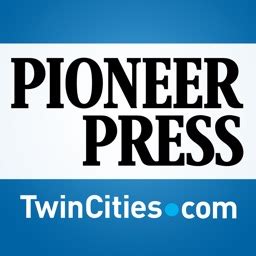Locating obituaries can be a crucial step in genealogical research, historical studies, or simply to pay respects to loved ones. The Pioneer Press, a significant newspaper serving the Twin Cities region in Minnesota, has been a cornerstone of local news and information for decades. Its obituary section is a vital resource for those seeking to find information about deceased individuals in the area. This comprehensive guide is designed to help you navigate and effectively search Pioneer Press obituaries, whether you’re conducting research, looking for ancestors, or searching for information on a recently deceased individual.
Understanding the Importance of Obituaries
Obituaries are more than just death notices; they are biographical sketches that offer valuable insights into a person’s life, achievements, and impact on their community and family. They can include details such as the person’s birth date, death date, places of residence, occupation, notable accomplishments, and information about their immediate family. For genealogists, these details can be particularly useful in tracing family histories. For historians, obituaries can provide context about social norms, cultural values, and the evolution of communities over time.
Accessing Pioneer Press Obituaries
The Pioneer Press offers several ways to access its obituaries, catering to different preferences and research needs:
Online Archives: The Pioneer Press website features an obituary search function that allows users to look up obituaries by name, date, or keyword. This is a convenient starting point for most searches. You can also filter results by date range, making it easier to narrow down your search.
Physical Archives: For those preferring a more tactile approach or needing access to older obituaries not available online, the physical archives of the Pioneer Press, located at their offices or at local libraries, can be a valuable resource. Microfilm records of past newspapers are often available, covering decades of publication.
Local Libraries and Genealogical Societies: Many public libraries and genealogical societies in the Twin Cities area offer access to historical newspaper archives, including the Pioneer Press, through databases like Newspapers.com, GenealogyBank, or local archives. These institutions may also provide guidance on how to conduct your search efficiently.
Effective Search Strategies
To maximize your search efforts, consider the following strategies:
- Use Specific Keywords: Including the full name of the deceased, along with any relevant dates (birth, death, or residence periods), can significantly narrow down your search.
- Utilize Wildcard Searches: If you’re unsure of the spelling or have incomplete information, using wildcard characters (such as * or?) in your search can help find variations of names or keywords.
- Broaden Your Date Range: Sometimes, obituaries may be published weeks after the date of death. Be sure to expand your search window to cover this possibility.
- Check for Nicknames and Maiden Names: Obituaries may refer to the deceased by a nickname or, in the case of women, their maiden name. Including these in your search can help ensure you don’t miss relevant results.
Interpreting and Using Obituary Information
Once you’ve located an obituary, here are some tips on how to interpret and utilize the information:
- Verify Information: While obituaries are generally reliable, they can contain inaccuracies, especially regarding distant relatives or less well-known facts about the deceased. Always verify information against other sources when possible.
- Look for Clues: Obituaries often contain clues that can lead to further research, such as mentions of surviving relatives, places of residence, or affiliations with organizations.
- Preserve the Information: Whether you’re researching family history or documenting community legacy, make sure to save or print out the obituaries you find. These documents can serve as valuable primary sources for future reference.
Leveraging Additional Resources
For a more comprehensive search, consider leveraging the following additional resources:
- Social Security Death Index (SSDI): A database of deaths reported to the Social Security Administration, which can provide confirmation of an individual’s passing and sometimes offer clues for further research.
- Local Cemeteries and Funeral Homes: Sometimes, cemeteries and funeral homes maintain records or can direct you to obituaries that might not be readily available online.
- Genealogy Websites: Platforms like Ancestry.com, FindAGrave, and FamilySearch can offer access to a wide range of obituary collections, along with other genealogical resources.
Conclusion
Searching Pioneer Press obituaries, whether for personal, academic, or professional reasons, can be a rewarding experience that offers insights into lives lived and the history of the Twin Cities region. By mastering the search tools and strategies outlined in this guide, you’ll be well-equipped to find the information you’re looking for, even in the vast and sometimes daunting landscape of historical records. Remember, the key to successful searching is persistence, creativity, and a willingness to explore multiple avenues of inquiry.
How can I access older Pioneer Press obituaries not available online?
+For older obituaries not available online, consider visiting the physical archives of the Pioneer Press or local libraries and genealogical societies in the Twin Cities area. These locations often have microfilm records of past newspapers that can be accessed for research.
What are some effective strategies for searching obituaries with common names or incomplete information?
+When dealing with common names or incomplete information, try using wildcard searches, including relevant dates, checking for nicknames and maiden names, and broadening your date range to ensure you capture the obituary if it was published weeks after the date of death.
How can I verify the accuracy of information found in obituaries?
+Verifying information found in obituaries is crucial. Cross-check details with other reliable sources, such as birth and death certificates, census records, or interviews with family members. This ensures the accuracy of your research, especially when dealing with genealogical or historical studies.



